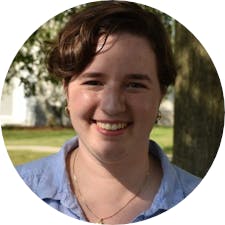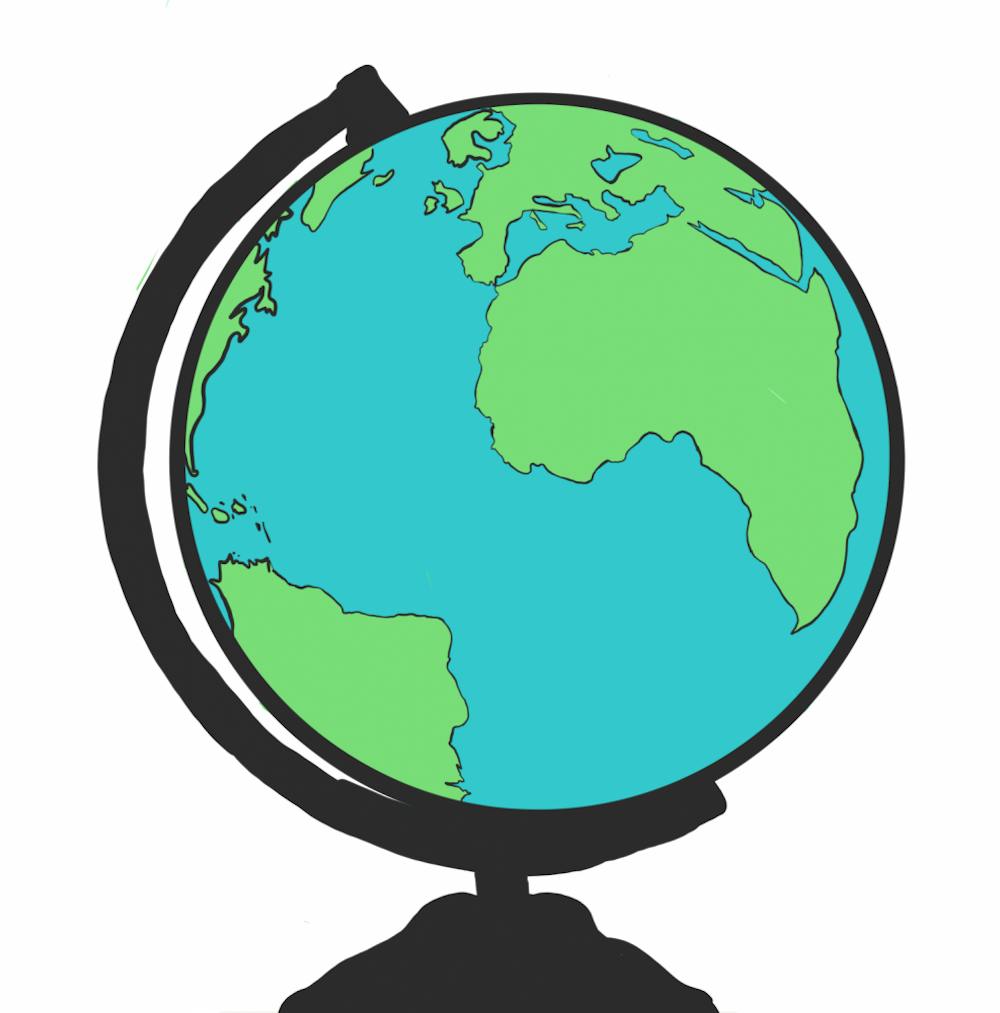As Middlebury students from across the country fill out absentee ballots and slip them into mailboxes in hopes of influencing state, local and federal elections, many of their peers can only watch from the sidelines. Yet the futures of non-citizen students depend just as much, if not more, on the outcome of the coming elections. While international and immigrant students anxiously await the results, many are getting involved in politics in whatever way they can.
Tony Sjodin ’23, a Swedish-born U.S. permanent resident, spent the summer volunteering for campaigns in his home state of Massachusetts and in Vermont. He estimates that he spent between 15 and 25 hours a week for nearly three months canvassing over the phone to encourage people to vote.
Unable to canvas due to Covid-19, Niki Kowsar ’21.5, an Iranian-born Canadian citizen and U.S. permanent resident, has focused on encouraging her citizen friends to vote, spreading awareness about the issues she cares about and discussing the issues with friends. Asif-Ul Islam ’23 and Paolo Gonnelli ’21, international students from Bangladesh and Italy, respectively, have closely followed the election by watching the debates and keeping an eye on the news.
Students reported worrying about the future of their health care and the possibility of growing xenophobia and racism. All of these worries are compounded by their inability to vote, creating a feeling of “powerlessness” as they helplessly watch and wait for the election results that may very well determine their futures, according to Kowsar.
The actions of the current administration, particularly regarding immigration, have impelled Kowsar and Sjodin, both green-card holders, to pursue citizenship. Sjodin applied in August. Kowsar’s application, however, has been delayed for another five years due to new immigration laws passed under the Trump administration.
The situation is even more precarious for student visa holders as the future of the visas they depend on to study and work in the U.S. likely hinge upon the outcome of the next election.
Trump signed an executive order in June suspending the issuing of new H-1B visas, which allow U.S. employers to temporarily employ foreign workers in speciality occupations through the end of 2020. The Trump administration has also threatened to curtail Optional Practical Training (OPT) visas, which allow international students to remain in the U.S. and legally work in an area related to their major after graduation until they are sponsored for an H-1B visa.
Immigration and Custom Enforcement (ICE) issued a declaration in July stating that student visa holders would not be allowed to remain in the U.S. if their colleges did not offer in-person classes. While ICE later rolled back the decision as colleges began to file lawsuits, it alarmed many international students.
For Gonnelli, the policies drove home a feeling that has been building within his heart throughout his three years here: he is not wanted or welcome in this country. He feels isolated in a country with no family and no safety net under a government he feels does not care about him. Though ICE reversed its decision about student visa holders, he decided conclusively this summer that he would not remain in the U.S. long after graduation and will instead build his future life in Europe.
Islam also worried about ICE’s decision. He decided not to go home to Bangladesh this summer out of fear that he would not be allowed to return to the U.S.
Coming from a Muslim-majority country, Islam is constantly concerned about Trump’s iterations of Muslim bans and the possibility of tightening immigration laws stranding him in the U.S. or Bangladesh. He looked into transferring to a Canadian university this summer, but most were not accepting transfers because of over-enrollment and pandemic-related issues.
Islam has not seen his family in over a year — the longest period he has been away from home — and he misses them greatly. Still, his parents are waiting to buy his plane ticket home for winter break until the election results come out. If Trump is re-elected, Islam will likely continue to stay in the U.S.
The United States does not exist in a vacuum, and the results of the upcoming election will have far-reaching effects on the rest of the world, including the home countries of many Middlebury students.
Kowsar worries about future policies of the U.S. toward Iran, where she was born. Recently, she has spent a lot of her time talking to her friends who are U.S. citizens and encouraging them to hold the future administration accountable over their policies towards Iran.
She hopes the next administration will not surround itself with people connected to the Iranian government who encourage policies that support the Iranian government, at the cost of their people.
Islam’s home country of Bangladesh has an important relationship with the U.S. As the third largest exporter of ready-made clothes, Bangladesh mostly trades with the U.S. They also send many students to study in American universities.
Islam worries that the Trump administration and Republican Party’s increasing isolationist tendencies — evidenced by recent policies limiting immigration and pulling out of international agreements and organizations like the Paris Climate Accords and the World Health Organization — may affect the flow of aid and trade between the U.S. and Bangladesh if Trump is reelected.
Kowsar hopes that Middlebury students who are American citizens will “vote and think about how [their] votes are affecting the lives of others, especially those who can’t vote.”
Tony Sjodin ’23 is a Senior News Writer for The Campus.

Sophia McDermott-Hughes ’23.5 (they/them) is an editor at large.
They previously served as a news editor and senior news writer.
McDermott-Hughes is a joint Arabic and anthropology and Arabic major.
Over the summer, they worked as a general assignment reporter at Morocco World News, the main English-language paper in Morocco.
In the summer of 2021 they reported for statewide digital newspaper VTDigger, focusing on issues relating to migrant workers and immigration.
In 2018 and 2019, McDermott-Hughes worked as a reporter on the Since Parkland Project, a partnership with the Trace and the Miami Herald, which chronicled the lives of the more than 1,200 children killed by gun violence in the United States in the year since the Marjory Stoneman Douglas High School shooting in Florida.




